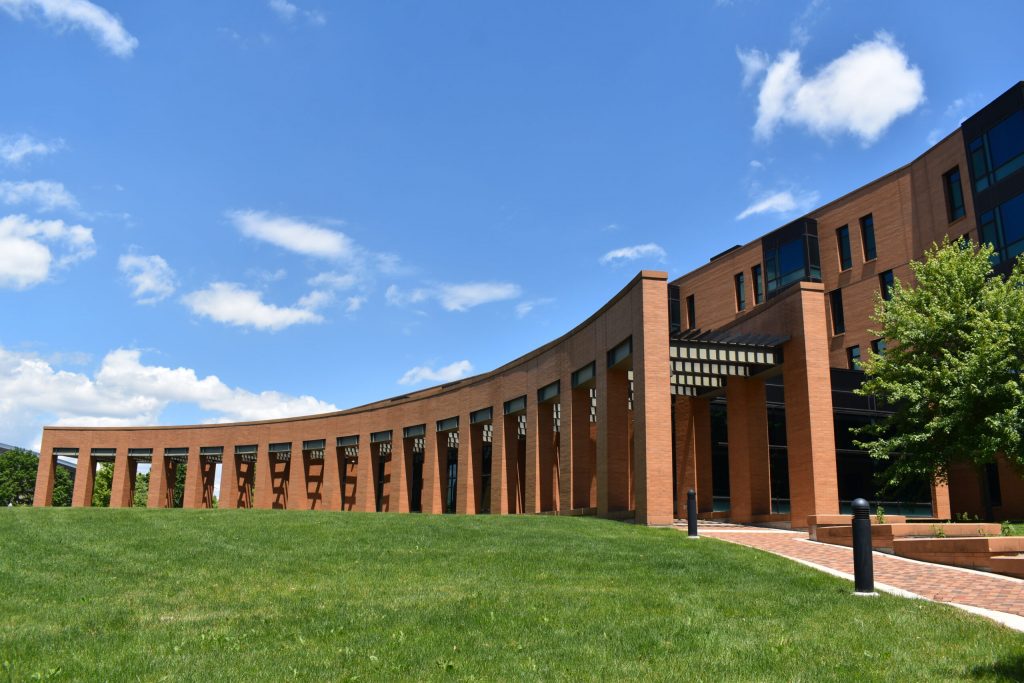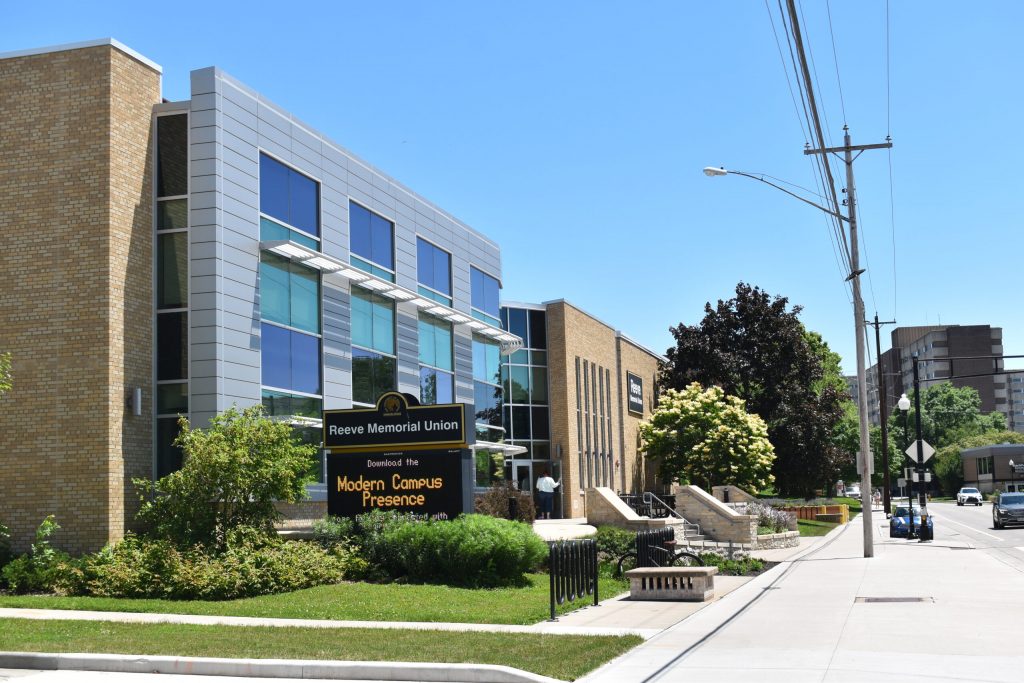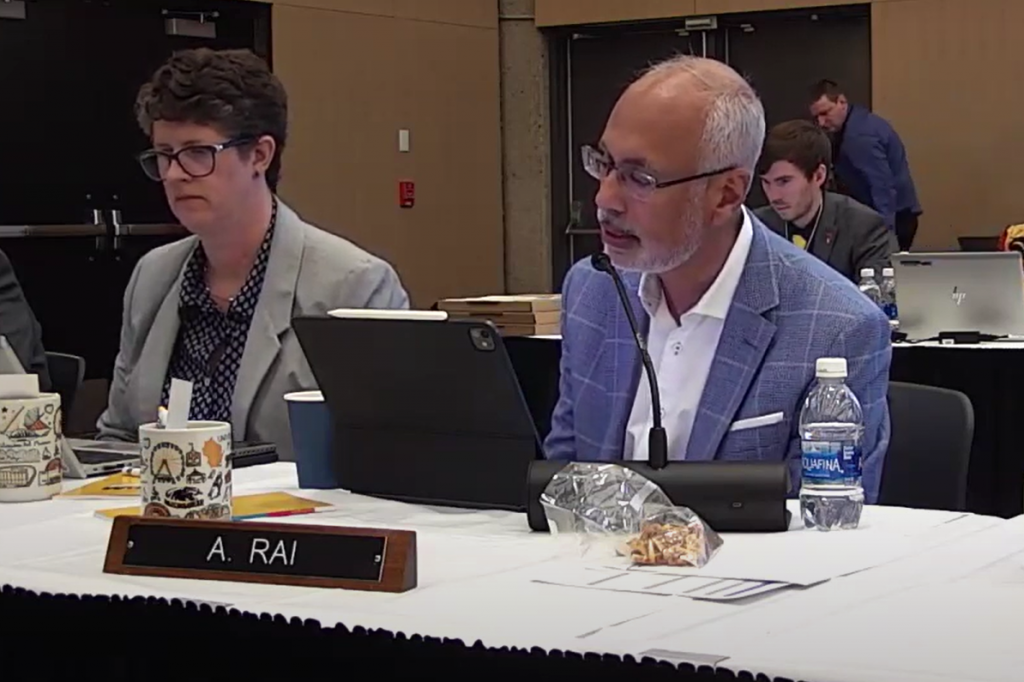6 UW Campuses Have Projected Deficits
Down from 10 last year after efforts to cut costs. Declining enrollment an issue.

A University of Wisconsin-Oshkosh sign is seen from Wisconsin Street in Oshkosh on Friday, June 14, 2024. (Joe Schulz/WPR)
The number of Universities of Wisconsin campuses projected to have budget deficits heading into next school year is down from 2023. But one campus has already used all of its reserves as efforts to address budget shortfalls there have negatively impacted staff morale.
Six UW schools are projected to have deficits next school year, down from 10 last year, according to Board of Regents finance committee documents. The structural deficits at those schools range from nearly $9 million to more than $500,000.
The projections come amid declining enrollment at several Universities of Wisconsin campuses and after a school year where several universities were forced to furlough and lay off employees, shift funding, make cuts and restructure portions of campus operations.
In a statement, UW system spokesperson Mark Pitsch said there’s still a lot of work that needs to be done to ensure the long-term viability of the state’s public universities.
“There will be more difficult decisions ahead,” he said. “But we are making progress toward our goal of eliminating structural deficits by 2028.”
At this month’s Board of Regents meeting, Gov. Tony Evers called for an $800 million increase in funding to the university system in the next two-year state budget, which would run from 2025 to 2027. But making an increase of that size a reality will likely face opposition from legislative Republicans.
UW-Oshkosh to borrow from system to address deficit
As was the case last year, UW-Oshkosh has the largest structural deficit at $8.6 million, down from the $15.2 million last year, according to budget committee documents.
UW-Oshkosh has also fully exhausted its unrestricted reserve balance, and is now projected to have a $7.6 million cash deficit for the first time in system history, said Regent Ashok Rai at this month’s meeting.

The Horizon Village Residence Hall is seen on the University of Wisconsin-Oshkosh campus on Friday, June 14, 2024. Joe Schulz/WPR
“That balance will be covered by reserves at the UW system with the expectation of payback and interest,” Rai said.
Leavitt said the campus hasn’t yet seen the full cost savings from eliminating more than 250 positions last school year. He said the campus plans to find additional savings by decommissioning and demolishing outdated and underused buildings.
By the end of the 2026 fiscal year, the chancellor says UW-Oshkosh hopes to have eliminated its structural deficit.
“We have a plan. It is working,” Leavitt wrote. “We are sticking to it. I appreciate everyone’s stewardship toward building a strong, sustainable UWO.”
Faculty, community members express growing frustration
Leavitt has faced criticism from within his campus and from the broader community for measures the university has taken to get its finances in order.
In April, 72 percent of UW-Oshkosh faculty who voted in a formal referendum had no confidence in Leavitt’s leadership. And Outagamie County Executive Tom Nelson last week expressed frustration over a lack of communication with Leavitt and other administrators prior to the announcement that Oshkosh’s two-year campus in Menasha would close.
Benjamin Artz, an economics professor at UW-Oshkosh, said in an email that faculty remain disappointed and frustrated with campus administration.
“UW Oshkosh has many strong programs and community assets that have been underutilized for nearly a decade due to poor vision, fiscal mismanagement and an overall lack of strategy,” Artz wrote.

The Reeve Memorial Union at the University of Wisconsin-Oshkosh on Friday, June 14, 2024. Joe Schulz/WPR
Paul Van Auken, an associate professor of sociology and environmental studies at UW-Oshkosh and a member of the United Faculty and Staff of Oshkosh union, shared similar sentiments. He said it was deflating to learn that the university system’s deficit projections were millions of dollars higher than UW-Oshkosh’s estimates.
After watching friends and colleagues leave the university last year, Van Auken said he was ready to put the campus’ financial troubles in the rearview mirror.
“This news was shocking — just another punch in the gut (and) just baffling,” Van Auken said. “How is this possible after the wringer we went through, losing so many good people?”
He also said morale on campus last year “was definitely the worst” he’s seen in 17 years with the university.
Other campuses face budget hurdles
According to system projections, UW-Oshkosh is facing the largest deficit of any campus going into the 2024-25 school year.
The other structural deficits are:
- UW-River Falls at $3.2 million, up from $2.0 million;
- UW-Eau Claire at $1.6 million, down from $5.6 million;
- UW-Superior at $1.5 million, up from $600,000;
- UW-Parkside at $1.0 million, down from $5.3 million;
- And UW-Whitewater at $509,174, down from the $5.9 million.
At the recent regents meeting, Sean Nelson, vice president for finance and administration at the Universities of Wisconsin, said the system has seen improvement in the financial outlook for the campuses, despite these remaining structural deficits.
“Three of those six have actually made progress in terms of reducing their deficit,” he said. “We just had a few campuses that are either sort of in a steady state from last year (or) a little bit worse than they were last year. But we have nine camps that have actually improved.”
WPR reached out to all six campuses with structural deficits for comment. Only UW-Oshkosh, UW-River Falls and UW-Eau Claire responded. UW-River Falls declined to comment.

Universities of Wisconsin Regent Ashok Rai, right, speaks about structural budget deficits at a Thursday, June 6, 2024 meeting of the Board of Regents. Screenshot courtesy of the Universities of Wisconsin
In a statement, UW-Eau Claire Vice Chancellor for Finance and Administration Tracy Drier said her campus has “sufficient reserves” to cover the projected structural deficit. She said UW-Eau Claire has made progress toward balancing the budget ahead of the UW system’s goal of 2028.
During the regents meeting, Rai said eliminating the deficits is “imperative” to the financial health and strength of the university system.
“We don’t have the luxury of time,” he said.
6 UW campuses projected to have deficits, even after cost-savings efforts was originally published by Wisconsin Public Radio.
If you think stories like this are important, become a member of Urban Milwaukee and help support real, independent journalism. Plus you get some cool added benefits.





















